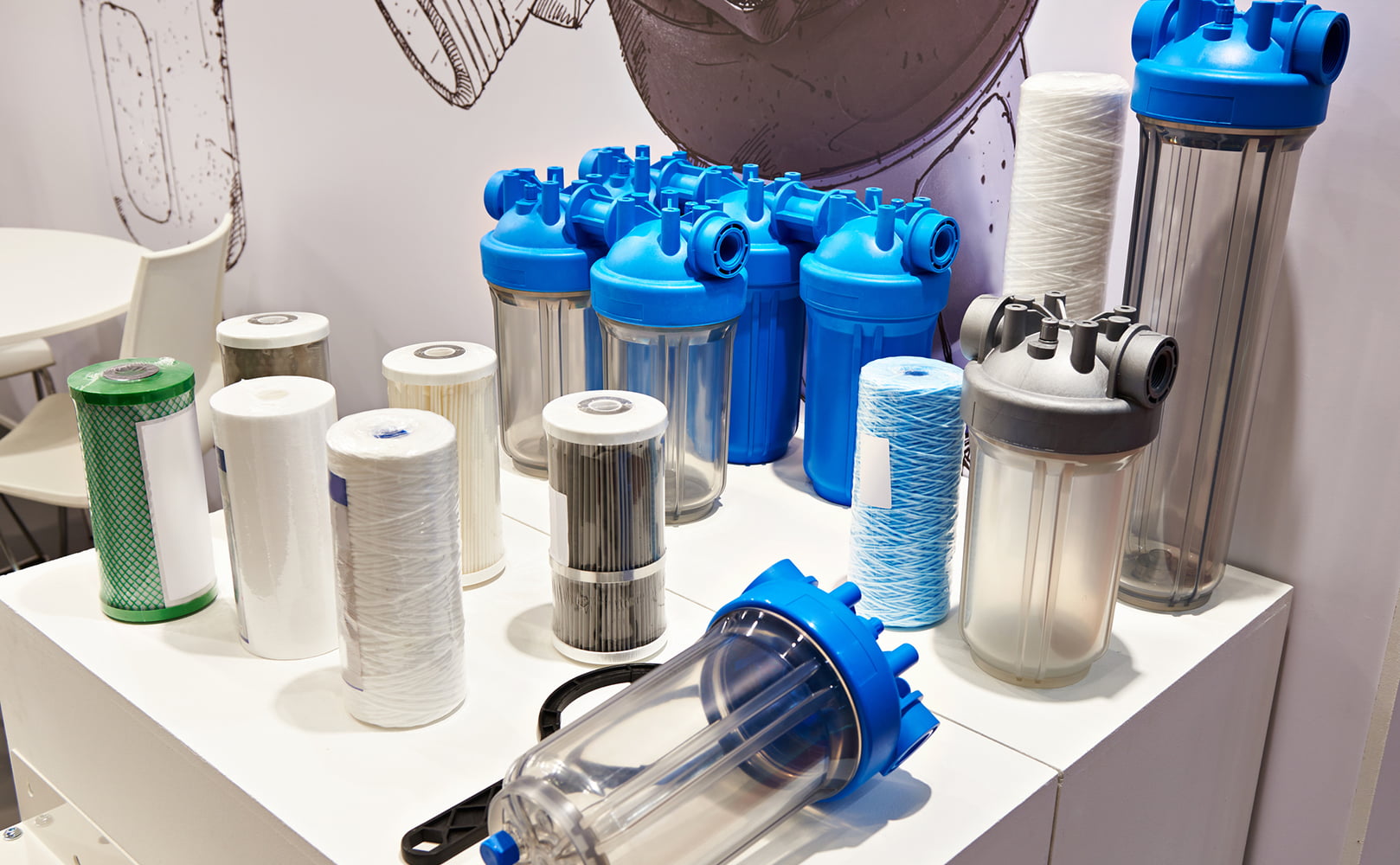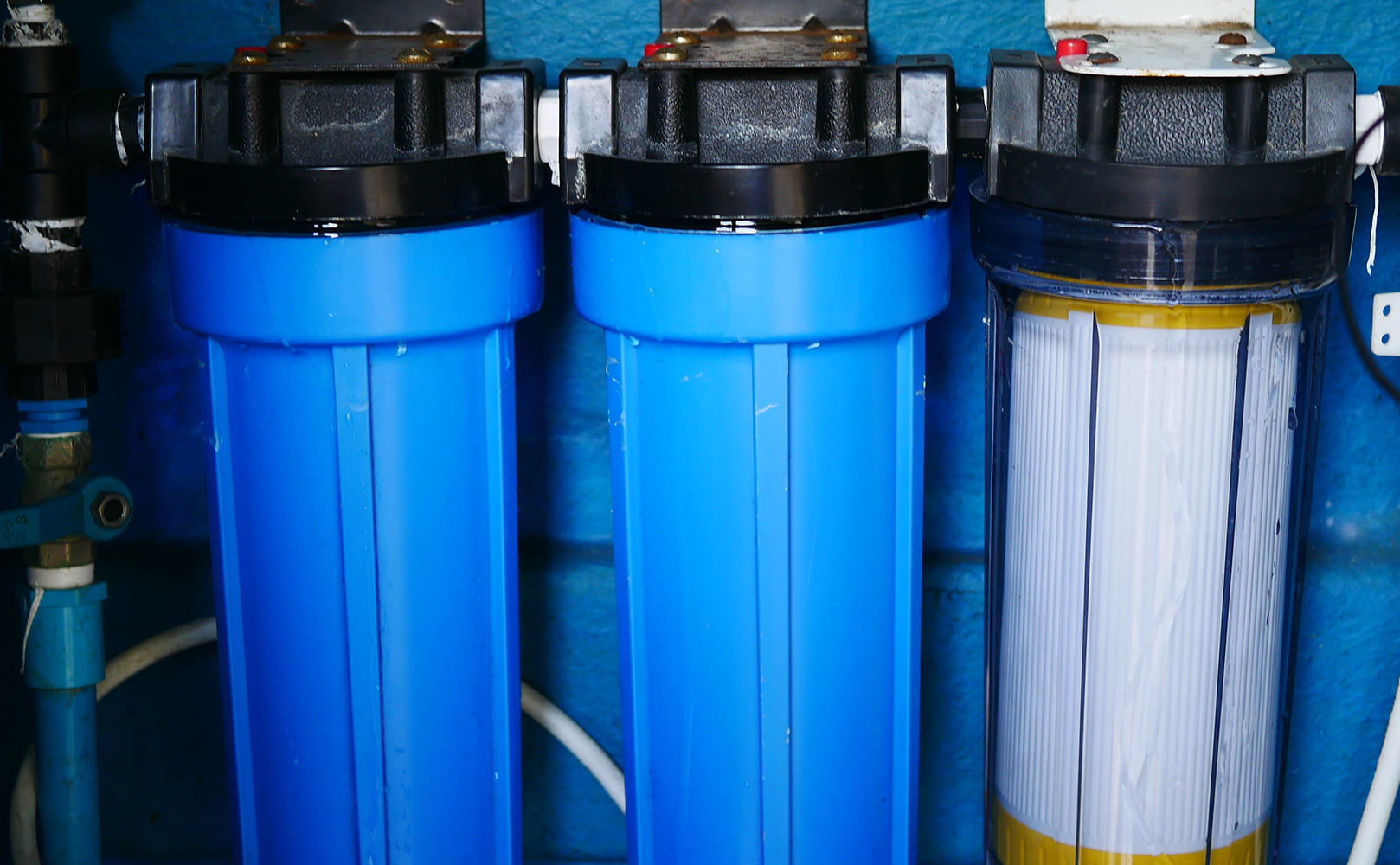How Often Should You Change Your Whole House Water Filter?
Written by: Alexandra Uta // Last Updated: Apr 18, 2023
This page may contain affiliate links. If you buy a product or service through such a link we earn a commission at no extra cost to you. Learn more.
It’s important to keep your whole house water filter changed regularly to ensure that your family has clean, safe drinking water.
But how often should you change it?
The frequency with which you need to change your whole house water filter depends on a number of factors which we are discussing in detail below!
Key Takeaways
- In general, you should change your whole house water filter every 3 to 12 months.
- How long it lasts is influenced by the filter type and material, your water quality, and water usage.
- Tip: Proper system maintenance can extend the lifespan of your whole house filtration system.
Replacement Schedule: How Often to Change a Whole House Water Filter
The replacement schedule of a whole house water filter varies. On average, a whole house water filter must be changed every 12 months.
A good tip is to check your manufacturer’s instructions on how often to change it. You can mark your calendar as well so that you don’t miss your replacement schedule.
Factors that Influence How Long a Whole House Filter Lasts
Several factors influence how long whole house filters last. Let’s delve into each one below.
Filter Type and Material (Filter Media)
For one, the lifespan of your filter depends on its type. Some whole house filters require replacement every couple of months, such as certain sediment filter cartridges, while others need to be changed a lot less frequently – think large tank-based carbon filters that can last for years.
Your Water Quality
If you have city water that is treated with chlorine your filter will often not need to be changed as frequently as for someone with a well who has water that is high in minerals, iron, or dirt.
Your Daily Water Usage
The more water your family uses, the faster your filter will become clogged and need to be replaced.
Overall Filter Quality
Not all filters are created equal. Some are better than others at filtering out contaminants.
System Maintenance
The lifespan of your system also depends on how you take care of it. Proper maintenance will extend the life of your whole house water filtration system and make sure it runs efficiently.
What Types of Filters Require Replacement?
There are different varieties of whole house water filters that remove various types of contaminants from your water, so it’s important to know which type of filter you have in order to change it on the proper schedule.
- Sediment filters – designed to remove larger particles, such as dirt, sand, and rust, from your water. These filters typically need to be changed more frequently, i.e. every 3-12 months.
- Activated carbon filters – designed to remove smaller particles, such as chemicals and chlorine, from your water. These filters typically need to be changed less frequently than sediment filters. Every 12 to 18 months is a good estimate.
- Catalytic activated carbon filters – designed to remove more stubborn contaminants, such as chloramine, from your water. These filters typically need to be changed at the same frequency as activated carbon filters.
- KDF filters – designed to remove heavy metals, such as lead and mercury, among other things from your water. These filters typically need to be changed every 1 to 2 years or so.
- Ion exchange whole house water filters – designed to exchange ions in the water with ions of the same charge. This process removes impurities from the water. Ion exchange filters typically need to be changed every 1 to 3 years.
- Reverse osmosis whole house water filter systems – designed to remove a wide range of contaminants from your water, including TDS and bacteria. These systems typically have multiple filters that need to be changed at different intervals.
- UV filters – designed to disinfect your water using ultraviolet light. UV light bulbs typically need to be replaced annually.
- Ultrafiltration – designed to remove particles down to 0.1 microns in size, including bacteria and viruses. These filters typically need to be changed every 6 months to 2 years.
What If You Don’t Change Your Whole House Filter Regularly?
Harmful bacteria or mold can build up in your filter over time, contaminating your home’s water supply. This can lead to serious health problems, particularly for young children, the elderly, and those with weakened immune systems.
Additionally, a dirty whole house filter can reduce the efficiency of your home’s plumbing system, reducing pressure and leading to increased water bills.
How an Old Filter Affects Water Quality
When an old filter is well past its replacement date, it becomes less effective in trapping contaminants like rust or sediment. This means that the water quality coming into your home starts to deteriorate.
Also, an old filter can start to grow microbes, which can be harmful to your health.
Benefits of Replacing a Whole House Filter Regularly
1. Better Tasting Water
One of the benefits of replacing your whole house water filter regularly is that it should lead to better tasting water. This is because the filter media is still fresh and most effective at removing impurities from the water, including chlorine. Chlorine can give water a funny taste, so getting rid of it can make your water taste a lot better.
2. Healthier Water
Replacing your whole house water filter can lead to healthier water. This is because a well-maintained whole house filtration system can remove many harmful water contaminants: Chemicals, heavy metals, VOCs, etc.
3. Cleaner Water
Another benefit of replacing your whole house filter is that it leads to cleaner water. This is because the filter will remove impurities such as dirt, rust, and other particles more effectively.
Can I Change My Whole House Filter Myself?
Yes, you can change your whole house filter by yourself. However, it’s important to follow the manufacturer’s instructions carefully to avoid damaging your filter system or your home’s plumbing. If you’re not comfortable changing your filter, or if you don’t have the time, you can always hire a professional to do it for you.
How Long Does a Whole House Filter Last When Not Used?
Unused water filters have no expiry. As long as they are not exposed to moisture, they can be stored indefinitely. However, in the event you used a water filter once and then left it unused for a long period of time, it is important to still change it eventually. This will ensure that your family always has access to clean, safe water.
Signs You Need to Change Your System Filter Soon
- Unpleasant water taste – This is usually the first sign that your filter needs to be changed.
- Odors – If your water starts to smell different, it’s a good indication that it’s time to replace your filter.
- Low water pressure – as your filter gets clogged with dirt and debris, it will start to restrict the flow of water, causing a drop in water pressure.
- Dirt or mold – if you start to see dirt or mold in your water, it’s definitely a sign that your filter is no longer performing.
- System tells you so – many modern whole house water filtration systems have a filter replacement indicator that will let you know when it’s time for a replacement.
If you have any questions about how often to change a whole house water filter please don’t hesitate to leave a comment below!
Information provided on BOS is for educational purposes only. The products and services we review may not be right for your individual circumstances.
We adhere to strict editorial guidelines. Rest assured, the opinions expressed have not been provided, reviewed, or otherwise endorsed by our partners – they are unbiased, independent, and the author’s alone. Our licensed experts fact-check all content for accuracy. It is accurate as of the date posted and to the best of our knowledge.



